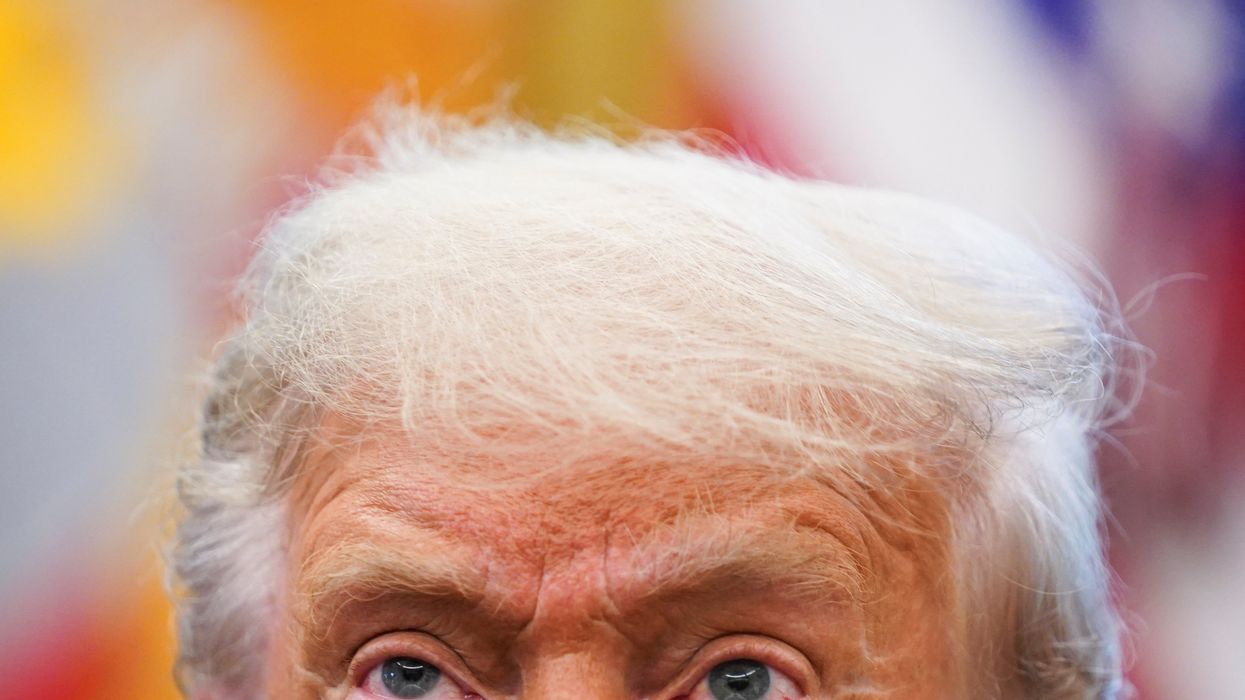During a passionate address on Tuesday night, June 10, California Gov. Gavin Newsom was vehemently critical of President Donald Trump's responses to the tense protests in Downtown Los Angeles.
The Democratic governor made it clear that while he welcomes peaceful demonstrations, he has zero tolerance for acts of violence. And Newsom argued that Trump, by federalizing California National Guard troops and sending in U.S. Marines, was committing a "brazen abuse of power" that "inflamed a combustible situation."
Newsom characterized Trump's actions as "weakness masquerading as strength," and the New York Times' Jamelle Bouie makes a similar argument in his June 11 column.
READ MORE: Navy veteran warns Americans that we're getting to the dangerous point of no return
Trump's supporters are hailing his response to the Downtown L.A. protests as strong, decisive leadership, but Bouie argues that Trump is showing his "weakness."
"You can almost feel, emanating from the White House, a libidinal desire to do violence to protesters, as if that will, in one fell swoop, consolidate the Trump Administration into a Trump regime, empowered to rule America both by force and the fear of force," Bouie warns. "The problem for Trump, however, is that this immediate, and potentially unlawful, recourse to military force isn’t a show of strength; it's a demonstration of weakness. It highlights the administration's compromised political position and throws the overall weakness of its policy program into relief."
Bouie continues, "Yes, a certain type of mind might see the president's willingness to cross into outright despotism as evidence of brash confidence, of a White House that wants to fight it out on the streets with its most vocal opponents because it thinks it will win the war for the hearts and minds of the American people. But strong, confident regimes are largely not in the habit of meeting protests with military force, nor do they escalate at the drop of the hat."
Trump, Bouie stresses, made a tense situation worse by choosing to "escalate."
READ MORE: 'Unacceptable and egregious': Veterans blast Trump for goading troops to boo his opponents
"As for the Marines," the liberal columnist writes, "the president has no authority under 10 U.S.C. 12406 to deploy them for law enforcement purposes, and the 1878 Posse Comitatus Act specifically forbids the federal government from using Marines, or any other regular defense force, to enforce domestic law. In short, there is a strong chance that the president's use of military force to stop protesters is an unlawful and unconstitutional expansion of presidential authority over the states. It is, however, in keeping with Trump's monarchical vision of his authority."
READ MORE: 'Blood, detentions and incarcerations': Analyst says Trump isn't satisfying MAGA's demands
Jamelle Bouie's full New York Times column is available at this link (subscription required).


